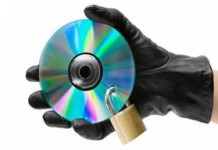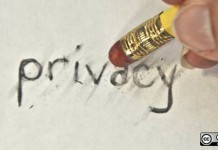
This past weekend, my son and I traveled to New York City for the annual Antiquarian Book Fair sponsored (at least in part) by The New York Review of Books, which is the one magazine about books that I highly recommend. As a subscriber to the Review, I was given a complimentary pass and because my wife advertises her art (see her website for beautiful paintings of the Hudson River Valley and portraiture) in the Review, she was able to get a second complimentary pass.
I mention the complimentary passes because the cost of admission to the Fair should have given me a clue as to what to expect. A daily pass cost $20 per person, so I should have known this wasn’t like going to the local used bookstore. In addition, I am familiar with several of the vendors and know that they sell truly rare manuscripts. But none of the clues clicked and we went to the Fair.
The Fair demonstrated to me why pbooks are so much more valuable than ebooks. I’m not talking about convenience or that pbooks lack the interactive capabilities of some ebooks. I’m talking strictly money value.
eBookers know — or should know — that when they buy an ebook, they are buying a license; they are not buying the book in the sense that they buy a pbook. The ebook is intangible, a collection of bytes that are infinitely duplicable, which means there is no such thing as ebook scarcity. In contrast, there are limits to the number of pbooks produced. Even if, as in the case of the Harry Potter books, hundreds of millions of pbooks are produced, there is still a finite number that bear the first edition-first printing seal of scarcity.
I am a collector of first edition pbooks. As much as I prefer to read a book on my ereader – the book is easier to hold; when I finish I can easily move on the next; I can adjust the type size for easier reading; etc. — I still get enormous satisfaction out of being able to let my eyes scan across my library shelves and pause on a book that reminds me of the pleasure I had reading the book. There is an aesthetic beauty to the physical book that ebooks cannot duplicate. Scanning across my ebook library is a very sterile process.
As a collector, I am always looking for a “bargain.” I initially thought that although there would be some expensive items for sale at the Fair, there would books that interest me and that would fit in my collection that I could afford. One of my favorite authors to collect is Sinclair Lewis, an American author from the early to mid 20th century, best known for his books Elmer Gantry, Main Street, and Babbitt. I have for years desired to add a fine copy of Main Street to my collection and have expected to pay several thousand dollars for such a prize.
This was my first shock at the Fair. Staring back at me from a display case was a wonderful copy of Main Street with a wonderfully preserved dust jacket, something that is not often seen. So I asked the price: $165,000. I assure you, $165,000 is not a typographical error. Needless to say, I didn’t buy. Nor did I buy several of the outstandingly gorgeous “art” books that depicted drawings of birds and plants and that cost between $225,000 and $300,000. Alas, my budget was significantly more modest.
But that made me take a closer look at price expectations for other more recent books that were for sale. Before going down that path, however, let me say that if you ever want to see — and touch — books that have price tags in the $200,000 and $300,000 price range, this is the Fair to attend. Dealers came from Europe and the United States and had a vast array of beautiful manuscripts — the books that make editors so pleased to be editors — for sale in prices that easily climbed from a few thousand dollars to hundreds of thousands of dollars.
But back to the more recent popular books that were for sale. Familiar with Suzanne Collins’ Hunger Games Trilogy? The books are only a few years old in hardcover, with the first book originally published in 2008. They were for sale — first edition, first printing — for $3,000. John Kennedy Toole’s 1980 book A Confederacy of Dunces was available for $8,000. And the list can go on.
The point is that we often talk about the used book market being available for pbooks but not for ebooks, but the used book market is simply a way to recoup some of the purchase price; it isn’t the same as the collector’s market. I never thought that a good argument for a lower ebook price was that unlike pbooks, I can’t resell ebooks on the used ebook market. But after visiting the Antiquarian Book Fair, I realized that the collector’s market is a market that should not be ignored in the argument about value.
The bottom line is that an ebook is less valuable than a pbook. It is less valuable because it cannot be collected; it cannot provide the visual gratification that a physical library, like a piece of art, can; it is licensed rather than owned; and, most importantly, it has no ability to increase in value over time if properly cared for and curated because it has no rarity. The ebook versions of the Hunger Games Trilogy will never have an intrinsic collectible value of $50, let alone of $3,000. There will never be a scarcity of the ebooks.
I suppose one counter to this argument would be that a limited electronic edition could be created. I’m not sure what could be included that would make such an edition more valuable than a standard ebook or make it collectible, but one thing is for certain: even a limited edition could not become scarce because of the ease of duplicating bytes. It is so much more difficult, if not near impossible, to duplicate a first edition-first printing of a pbook. Ink and paper, for example can be analyzed and dated; pretty hard to do with bytes.
For the book lover, the person who not only has an insatiable appetite for reading but also wants to collect beauty and rarity, the pbook garners all of the value. The ebook is a loser in this battle. I expect that the collectible market will sustain pbooks for decades to come, especially as the number of book collectors is growing, not decreasing.
Do you agree?
(Via An American Editor.)


































Book commodification means conversion of immaterial literary content into consumer products. Such commodification is necessary for screen books too. The problem is that screen readers display more than a single literary work. As a result their consumer commodification is not based on titles but on devices.
Other screen display venues have confronted this issue well before the advent of ebooks. Fabulous Balaban & Katz movie theaters, for example, commodified the movie experience and home receivers lent physicality to television. The issue for these trans-title displays has been to further leverage both consumption of display devices and the constant upgrading of display experience. Another leverage has been ancillary product exposure and endorsement. Amazon, for example, can decoy devices as ebook readers that are actually intended to induce much wider product purchase.
So there really is something real about ebooks. It is the hand-held screen display device. But don’t assume that such devices will somehow assure the future of books.
It begins to look like electronic reading devices may actually dissolve books. Not only does screen display migrate away from conventions of print but the capital-intensive industry of printing, publishing and retail book product display can be starved. Once the print product is gone the ebook industry, as an orphan, may find itself in a more predatory commodity environment.
I’m a reader, not a collector. While I can appreciate the beauty of a finely made book, it doesn’t hold any monetary value for *me*.
Methinks the books weren’t the only antiquarian things at that fair. Placing artificially-inflated dollar amounts on a hardback book does not, in fact, make it “valuable.” Craftsmanship or not, it’s just a bound collection of wood pulp, maybe with animal hide; the words inside are much more valuable.
Spending money like that would, I suppose, be the equivalent of my buying the original film print of Star Wars shown at the Uptown Theatre’s first showing in Washington, D.C. Personally, I’m good with the DVD. Especially considering the shape of that print today.
Sure, people can collect what they want, and spend what they want for them. But at prices like that, do you really think the collectible book market will increase? I doubt it.
Those at the Antiquarian Book Fair couldn’t give a monkey’s about the contents of the books, the writing or the writer. Their only interest is in the $$$$ value. An eBook is the real vessel for the pure writing; the inspiration of the artist/writer. When it comes to purity, the eBook is superior in every way, while the paper enthusiasts are really just obsessing about the ‘object’ in either a purely commercial or fetishistic way.
Agree with Howard on this. The rare book market is just a slightly more adult version of trading baseball cards: you’re assigning lunatic values to a physical artifact that is essentially worthless (from a materials point of view). If people choose to buy in such a market (the reason for selling isn’t a mystery :-), well, fine. But it would be hard to argue that you’re somehow deriving thousands upon thousands of dollars of objective extra value from owning *that* copy of the book, rather than, say, the trade or mass market paperback picked up at a local thrift store.
Older ebooks will be collectible when they are only accessible from an older device (for one reason or another). I suspect that in 50 years nobody will have a kindle and may have trouble figuring out how to open a mobi file. On the other hand, once you have it as a text or html file, the process of upconversion won’t seem strenuous.
I don’t think ebooks have lessened the desire to have physical books that are different in some way (in genre or presentation). Also some books might have special marking associated with the author or the time period which are “collectible”.
I agree. I don’t think pbooks can ever be gone in this world, not in the present and neither in the future. Many readers are still giving value to pbooks, the space it takes up in their bookshelf and the extensive collection they can see once in a while without having to open their computers. Ebooks are, in fact, great, however, as an alternative to pbooks where readers can read anywhere with more book options without having to actually bring piles of book.
My company is working on a solution for the pBook vs. eBook problem… the best solution would be to have both! We’d like to be able to offer you the option of getting a free (or highly discounted: think $0.99 – $2.99) eBook edition by proving you own a physical edition. Proving you own a physical object isn’t easy, but we think we’ve solve this using some clever computer vision algorithms written into a smartphone App. We haven’t launched just yet, but are working hard to make this a reality soon… Our website BitLit will have updates on our progress…